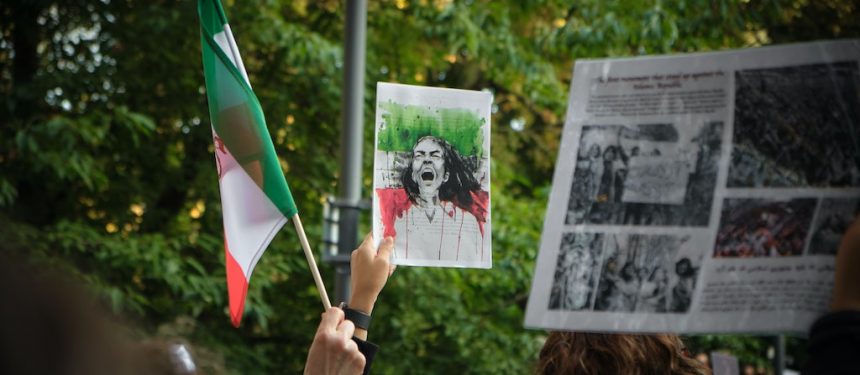A former assistant professor at an Iranian university has called on fellow academics to support the students leading anti-government protests and warned the international community against turning a blind eye to the events unfolding at the country’s universities.
News and business analysis for Professionals in International Education
Have some pie!
Iran unis ‘backing dictatorship’ – academic
 Erfani called on the international community sanction the country’s science minister who oversees higher education and research. Photo: Unsplash.
Erfani called on the international community sanction the country’s science minister who oversees higher education and research. Photo: Unsplash. Encieh Erfani, who is now outside of Iran and can no longer return to her country after speaking out publicly against the government, described the Iranian people as “ready for explosion” leading up to the death of 22-year-old Mahsa Amini, following years of government repression.
Amini died after being detained by morality police in September, leading to nationwide protests that are still ongoing. Iran’s universities have quickly become the centre of student-led revolts.
Erfani resigned from her position as an assistant professor at an Iranian university and now wants other faculty members to speak out about the brutality their students are facing from the government.
Students have been arrested and beaten while taking part in protests and sit-ins, despite Iranian laws forbidding the police from entering universities. Some protestors have been killed, while one Afghan student in the country has allegedly been missing for over a month.
Since the protests began, 555 students have been arrested, according to an Iranian non-profit – a number that Erfani says is “increasing exponentially”.
Daily Statistics on Iran Protests#Iran#HumanRights pic.twitter.com/lxlWEjHc9x
— HRANA English (@HRANA_English) November 25, 2022
Erfani said she had been considering leaving her position for several years due to the corruption across the country’s universities. Iran’s public institutions are under close government control, with university leaders selected by the country’s Ministry of Science, Research and Technology.
“I knew that I [was] working for a dictator,” Erfani said, explaining that she had been reluctant to quit due to the lack of alternative skilled jobs in the country. But when Erfani saw the latest protests break out, she felt that these would be “the last ones”.
“It was really clear that the people cannot tolerate the situation anymore. And as a faculty member also, I couldn’t tolerate it.”
Erfani wants fellow academics in Iran to support the students involved in protests, but believes many are choosing not to for fear of being fired by their universities and blacklisted by the government, meaning they would not be able to find another job in future.
At the beginning of November, 600 Iranian faculty staff signed a letter calling on the government to release students and ban the police from campuses, but no action has been taken on either side since.
“They are working with a dictator so whatever [salary] they are receiving is just mixed with the blood of their own people,” she said.
Erfani has also called on the international community to take action, including sanctioning the country’s minister for science, research and technology minister who oversees higher education and research.
She urged universities in other countries to publicly condemn the government’s treatment of students and be wary of allowing academics who support the Iranian regime to participate in events and conferences.
Some international institutions and bodies have expressed their solidarity with students, including Universities Canada and DAAD.
Erfani said that universities should also support their international Iranian students and find a way for them to stay at their institutions if their courses are due to finish soon, rather than be forced to return to Iran.
“In the case of the revolution, you cannot be a grey part of the country”
Iranians studying abroad have been standing in solidarity with their peers at home, leading vigils and holding events to raise awareness of the situation.
“I’m just fighting for the students,” Erfani said. “I hope the faculty members, they really realise: ok, the revolution is happening in Iran. In the case of the revolution, you cannot be a grey part of the country. You should be black or white.”
Still looking? Find by category:


